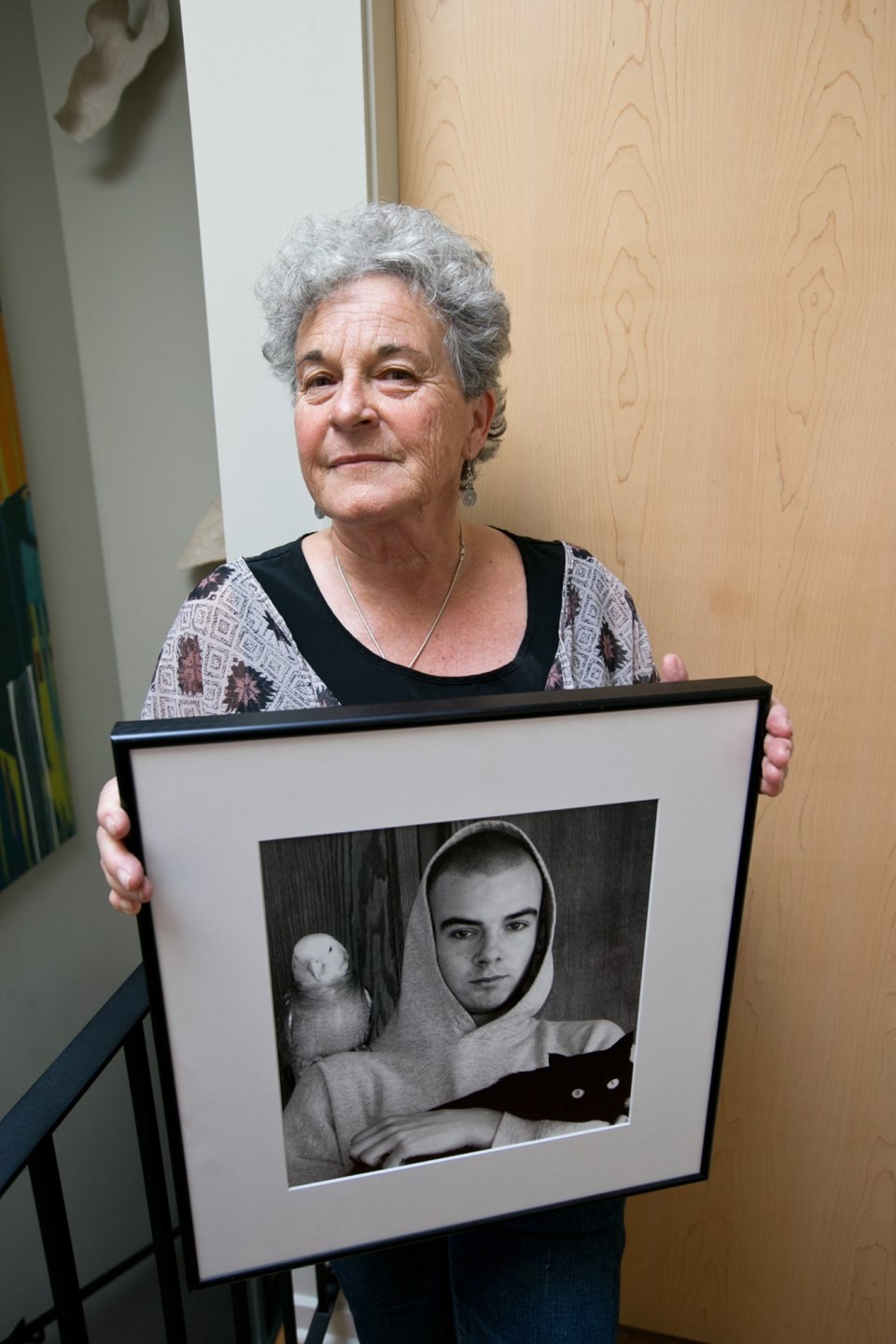Parents whose children died of drug overdoses applauded the B.C. government for launching a class-action lawsuit against pharmaceutical companies, saying it could raise awareness about the addictive power of prescription opioids.
“I’m very happy about the awareness it’s going to bring across Canada,” said Leslie McBain, whose son, Jordan Miller, died of an overdose in 2014 after becoming addicted to OxyContin. The 25-year-old was prescribed the medication two years earlier after injuring his back at work.
While changing the practices at major pharmaceutical companies is as difficult as “righting the Titanic,” McBain said the lawsuit could change how opioids are prescribed.
McBain is the co-founder of Moms Stop the Harm, an advocacy group made up of parents who have lost children to the overdose crisis. She spoke at a rally and candlelight vigil held Wednesday in Centennial Square in advance of International Overdose Awareness Day on Friday.
She said her son’s story shows that not everyone addicted to drugs is on the street — some are working professionals who hide their addiction.
The province’s lawsuit names Purdue Pharma Inc., which makes OxyContin, and other major drug manufacturers. It also targets pharmacies, claiming they should have known the quantities of opioids they were distributing exceeded any legitimate market.
At least 1,399 people died of drug overdoses in B.C. last year, up from 974 the year before, according to Statistics Canada.
Judith Conway, a Comox woman whose 30-year-old son, Matthew, died of an overdose last November, said while the lawsuit could change the way drugs are prescribed, immediate solutions are needed to stop more deaths from occurring.
“There needs to be more help. They need long-term recovery. [The province] needs to be proactive, not reactive,” she said.
Conway tied 3,987 pieces of yarn onto a string to mark each person who died in Canada of a drug overdose in 2017. The multi-colour string lined the fence of her Comox home until Wednesday, when she took it to Centennial Square, a stark visual reminder of how many families have been affected by the opioid crisis.
“I thought, we need more visuals, otherwise it’s just numbers.”
Conway said her son, a cross-fit trainer and manager of a gym in Port Coquitlam, hid his addiction from friends, family and co-workers because he felt ashamed. He had struggled with addiction on and off for seven years after he was prescribed painkillers for a bike accident.
Conway said just as it takes a village to raise a child, it “takes a village to save a child.”
“Our community really needs to pull together,” she said. “Stop the shame, start talking and really help these people so they’re not sitting in their own houses dying.”
— With files from the Canadian Press



